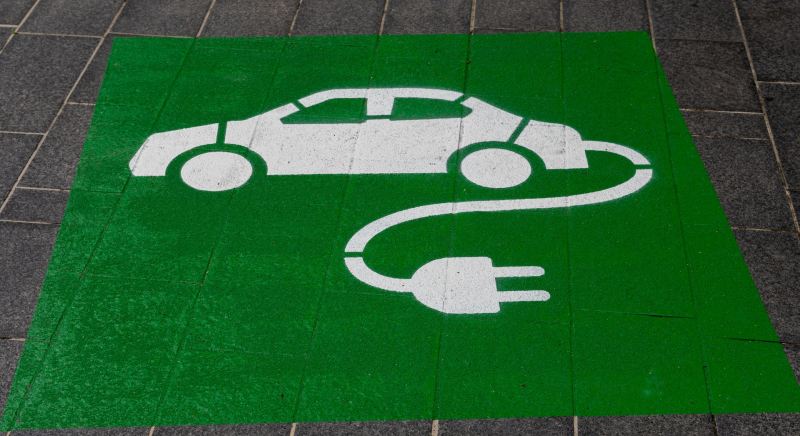
In September 2022, General Motors released images of the 2024 Chevy Equinox. The car, which is scheduled to start to become available in the fall of 2023, with the full lineup ready in the spring of 2024, was touted by GM as an EV that everyone can afford, beginning “around $30,000.”
“We have every intention to build and sell the vehicle that will start in that price range,” Scott Bell, vice president of global sales at Chevy, said at the time. “That is critical to the success of what we’re doing at Chevrolet — building an EV for everyone.”
Historic inflation and supply chain constraints have not curtailed GM in its pursuit of entry-level cheap electric cars. While the prices of most EVs remain high, there are a number of new cheap electric cars on the market around or under $35,000 MSRP that you don’t have to wait for. Here you can compare prices and features before you hit the showroom floor to join the club saving at the pump.

Chevrolet Bolt
Starting price: $27,495
EV range: 259 miles
Chevy’s Bolt is the most affordable EV on the market and a great deal for the price. A roomy interior, smooth ride, and long battery range offer a solid bang for your buck. The Bolt offers a 259-mile driving range on a single charge and can be fully recharged in 7 hours with a standard, Level 2, 240-volt home charger. Level up to a Level 3 DC fast-charging station (as an added option) and add up to 100 miles of charge in 30 minutes.
The 2022 Bolt’s popularity caused it to hit the federal tax credit volume limit, but according to information on GM’s website, the 2023 Bolt may be available for a $7,500 federal clean vehicle tax credit (depending on eligibility). The Bolt 1LT starts at an MSRP of $27,495 (customers can upgrade to the 2LT for $3,200 to add leather upholstery, machined aluminum wheels, heated exterior mirrors, and a 360-degree camera system). Customers can add adaptive cruise control for $495.

Nissan Leaf
Starting price: $28,140
EV range: 121 miles
After being released in 2011, the Nissan Leaf is one of the original cheap EV cars on the road. As such, Nissan now sports several Leaf models, including the affordably priced S model, which starts at an MSRP of $28,140, and the Leaf SV Plus model, which has an MSRP of $36,190.
The Leaf has always featured limited storage and back seats that don’t fold flat, but these are small quibbles that go hand-in-hand with saving you money.
Both models include a 40-kWh battery with an optional 60 kWh option and the SV Plus has a 160 kW electric motor that can go about 212 miles on a full charge. With added driver-assist tech, cell phone app connections, and other add-ons, brings the Leaf SV Plus to a much higher sticker price.

Mini Cooper SE
Starting price: From $30,900
EV range: 114 miles
If it’s something more sporty you’re in the market for, the Mini Cooper SE offers the original rally car ride for the road. The go-cart-like Mini is traditionally more expensive than most mainstream rivals, but the Mini Cooper SE is an exception as one of the most cost-friendly EV models.
Starting at $30,900, the Mini Cooper SE features the same frisky handling and signature style as its 61-year-old, original petroleum-powered British forebearer. In 2022, Mini Cooper updated the car’s front and rear bumpers, added a standard digital instrument panel, and a larger standard touchscreen.
The catch is that this EV only carries an EPA-estimated 114 miles of range — a good deal less than its competitors. If you live in a small or close-knit area, the Mini SE can handle quick commutes and is small enough to squeeze between tight city spaces.

Tesla Model 3
Starting price: $32,470 (after federal tax credit)
EV range: 272 miles
Admittedly, there is an asterisk that comes with this entry. The Tesla Model 3 does come with an MSRP of $40,240, but the car is eligible for a $7,500 federal tax credit, which Tesla says brings the price down to just over $32,000 (Tesla also says drivers should expect an estimated gas savings of $3,000 over three years, but we aren’t going to count that in the vehicle price).
Perhaps the biggest name in EVs, Tesla is well known for its design and technology. The Model 3 has a range of 272 miles, and Tesla has installed a network of charging stations all over the country to keep its drivers on the road. The company claims that a Tesla Supercharger can add 147 miles of range in just 15 minutes. Like most Teslas, the Model 3 has some power, it can go 0-60 in 5.8 seconds and has a top speed of 140 mph.

Hyundai Kona Electric
Starting price: $33,350
EV range: 258 miles
The Korean car maker Hyundai is all-in on EVs and green goals. The promise of innovative platform upgrades is driven by Hyundai’s mission to achieve carbon neutrality by 2045. This drive is apparent in the sporty, stocky Kona Electric.
The four-door subcompact SUV is at the top of its price class with 258 miles of EV range, and a large 64 kilowatt-hour battery. DC fast-charging capabilities can go from a 10% to an 80% charge in as little as 47 minutes. A 201-horsepower electric motor powers the front wheels, making the Kona quick, agile, and fun to drive. In addition to a rugged, toned exterior, the Kona also includes a long list of standard equipment such as its 8-inch touchscreen (a 10.25-inch touchscreen in standard on the SEL and Limited models) and a center console with wireless charging capability.
This is still a small car, though, so rear legroom can be tight, cargo space limited, and availability isolated only to certain states (primarily those with required targets for zero-emission vehicle sales). An $8,000 upgrade to the Limited model will get buyers all the trim in addition to adaptive cruise control and automatic high beams.
Do your homework before joining the club to save hundreds of dollars a year while protecting the planet without gas fill-ups. With battery life, faster charging time, and accessibility rising with each coming day, buying an EV is likely a decision you won’t regret.



